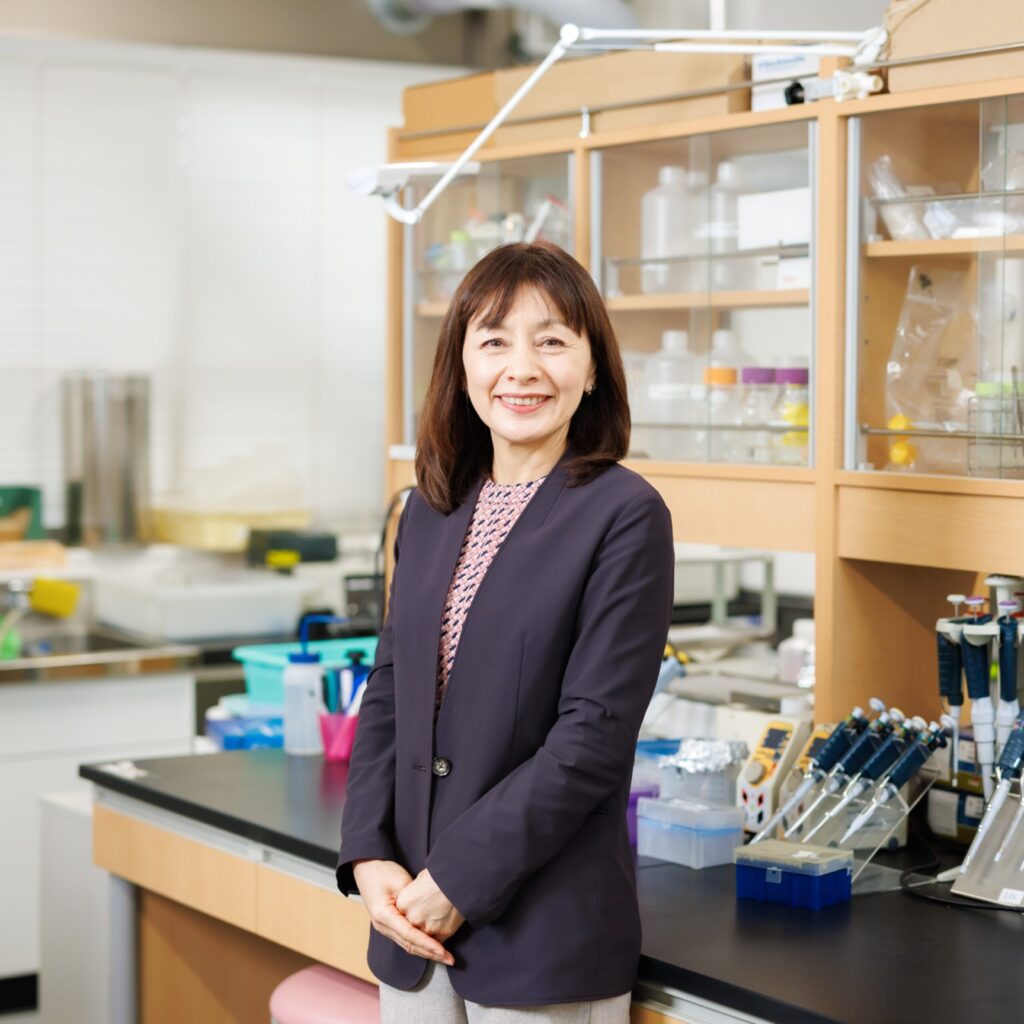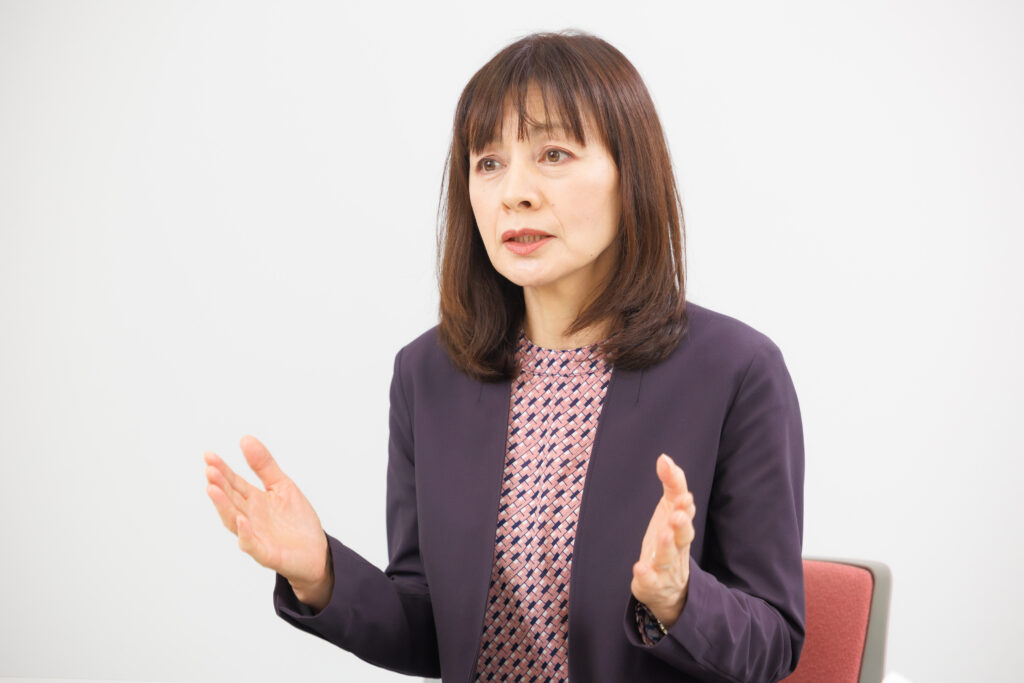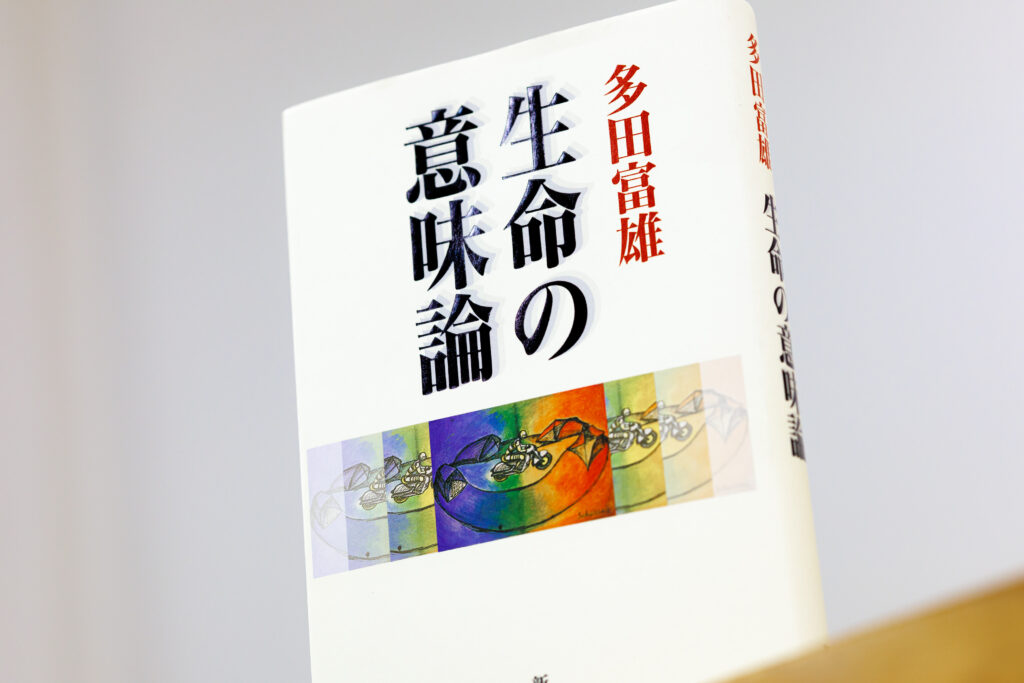
Professor Takako Niikura of the Faculty of Science and Technology investigates Humanin, a molecule in the blood that protects neurons from cell death in the brain. It is hoped that Humanin will have a positive impact on healthy life expectancy—but how does it work, and what does the future hold?
The number of elderly people is increasing around the world. Ensuring the elderlies live healthy and continue to enjoy a high quality of life has become an important societal issue. As our population ages, so the number of people with dementia is rising—indeed, by 2050, some 10 million people are predicted to suffer from dementia in Japan alone. For Alzheimer’s disease, which accounts for approximately 70% of all cases of dementia, aging is a particularly significant risk factor.
In 2001, while searching for molecules to combat Alzheimer’s disease, the team I was leading discovered Humanin. Various functions of Humanin have since come to light, and studies on this molecule from various aspects are now flourishing all over the world.
Possible effects of Humanin for healthy life expectancy

Humanin is a polypeptide that exists in the blood, and it shows inhibitory effect on neuronal cell death. In experiments with mouse models, Humanin delayed the progress of Alzheimer’s disease. We have recently discovered that Humanin actually increases neuronal activity in both cellular and animal levels. In human research the Humanin levels in the blood decrease with aging, and Humanin acts not only on neuronal cells but also on various other types of cells such as muscle cells.
I am currently investigating Humanin’s efficacy in preventing aging—that is, in “rejuvenation.” Roughly speaking, if we could use Humanin’s anti-aging properties to delay aging in the human body, then we may be able to inhibit the onset of dementia, prevent age-related forgetfulness and muscle loss, and extend healthy life expectancy in humans. Humanin is also reported to be effective in improving diabetes, which is a known risk factor for the onset/progress of Alzheimer’s—in the future, it may even help us develop methods for treating both age-related dementia and age-related diabetes.
To rationally approaching “anti-aging,” we must first understand “aging”
Diseases such as dementia are closely linked to the aging of the body. Human bodies are collections of cells, and we know that aged cells are accumulated in aged bodies. If we wish to understand “anti-aging,” then we must first understand “aging”—such as the mechanisms of cellular aging, and the relationship between the aging of these individual cells and whole-body aging.
Studying dementia and aging as part of the Faculty of Science and Technology—and not as part of a medical school allows me to analyze the human body function from the perspective of basic science. Illness and health are like two sides of a coin, and I believe that studying the mechanism of illness naturally illuminates what is the essential basis for healthy life. I keep devoting myself to the research questions in front of me every day. I am hoping that my effort and the great potential of Humanin may one day bring solutions to our serious problems.
The book I recommend
“Seimei no imiron“(The semantics of life)
by Tomio Tada, Shinchosha

This book explains living organisms in a logical and systematic manner, and overturns the widely believed misunderstanding that biology is a subject that requires mass-memorization. It reveals the incredible subtlety of living organisms, and shows that their existence rests on systems that have high levels of completeness.
-
Takako Niikura
- Professor
Department of Information and Communication Sciences
Faculty of Science and Technology
- Professor
-
Graduated from the Department of Veterinary Medicine, School of Veterinary Medicine, Hokkaido University, and received her Ph.D. in Pharmacology at the University of Tokyo. After working as an Instructor at the Keio University School of Medicine, a Research Assistant Professor at Georgetown University, an Assistant Professor at Simon Fraser University, and associate professor at the Sophia University Faculty of Science and Technology, appointed to her current position in 2019.
- Department of Information and Communication Science
Interviewed: August 2022